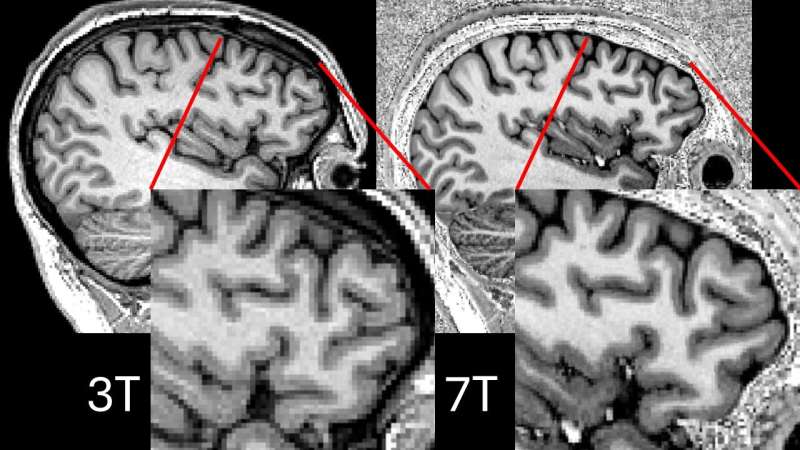Previously, 7T MRI scanners—so-called because they operate using a 7 Tesla magnetic field, more than double the strength of previous 3T scanners—have suffered from signal blackspots in crucial parts of the brain. But in research published in Epilepsia, researchers in Cambridge and Paris have used a technique that overcomes this problem.
Around 360,000 people in the UK have a condition known as focal epilepsy, which causes seizures to spread from part of the brain. A third of these individuals have persistent seizures despite medication, and the only treatment that can cure their condition is surgery. Epileptic seizures are the sixth most common reason for hospital admission.
In order for surgeons to perform this operation, they need to be able to see the lesions (diseased tissue) in the brain responsible for the seizures. Then, they can work out exactly which areas to remove to cure the patient’s epilepsy. If surgeons are able to see the lesions on MRI scans, this can double the chances of the patient being free of seizures following surgery.

